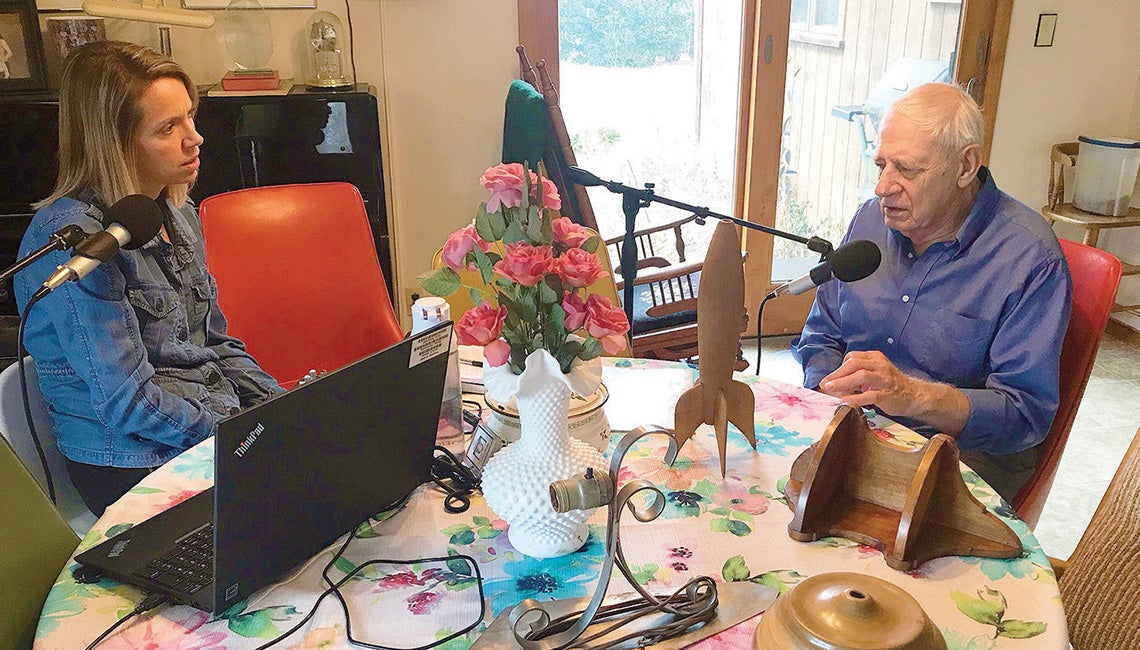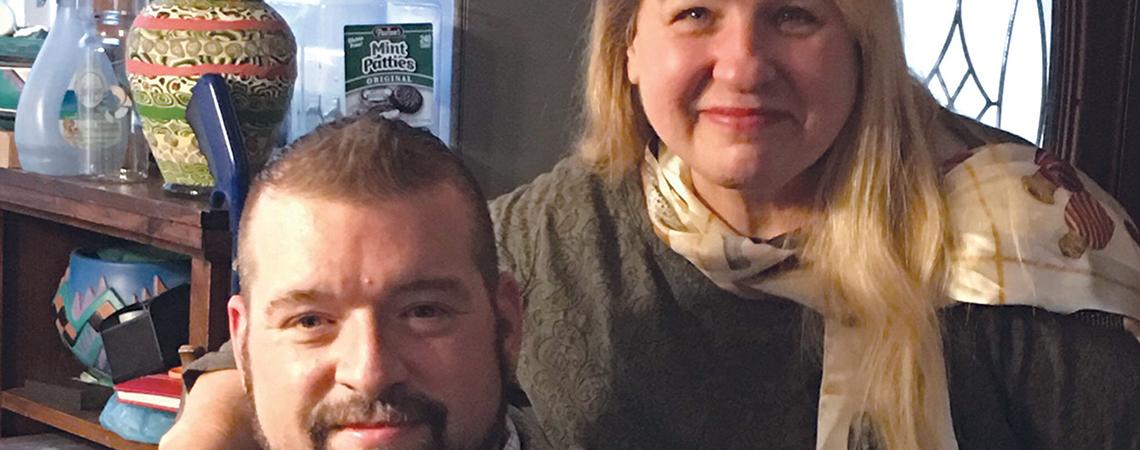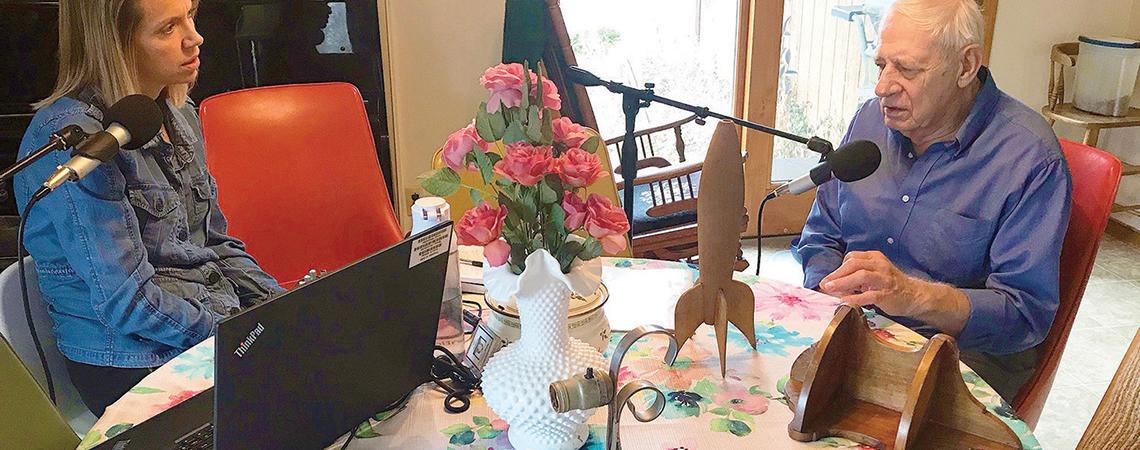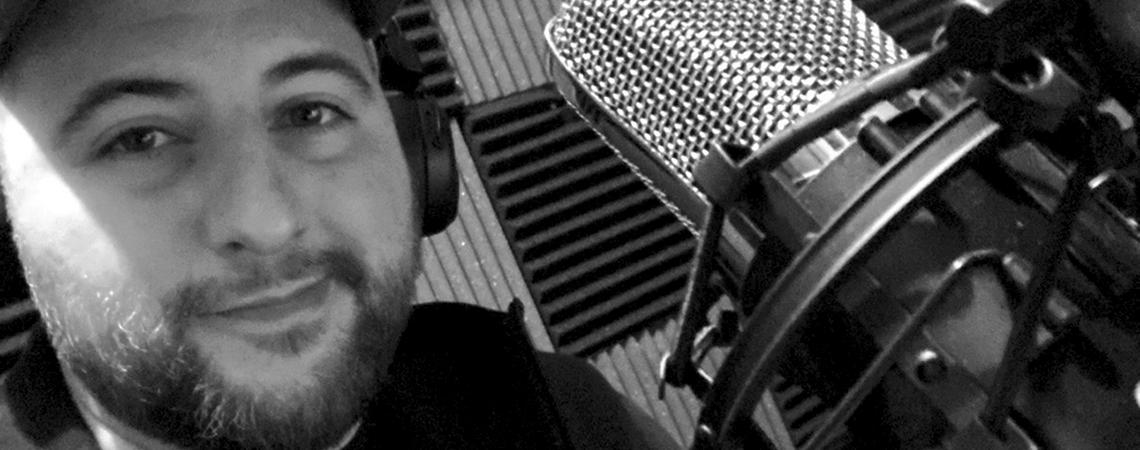A week after Paula Schleis retired from the Akron Beacon Journal, she received a text message from her nephew:
"I know what you’re going to do in retirement — do a podcast with me."
Schleis texted back: "What’s a podcast?"
Podcasts, she soon learned, are digital audio programs that listeners can stream or download. The technology emerged in 2004, allowing people to play internet radio shows on iPods and other early devices — hence the name. Today, Apple’s iTunes is home to more than 1.5 million pograms covering nearly every topic imaginable.
Paula Schleis and Stephen Yoder untangle state lore on their 'Ohio Mysteries' podcast.
After several brainstorming sessions, Schleis and her nephew, Stephen Yoder, created Ohio Mysteries, a podcast that explores unsolved crimes, local legends, and interesting stories with an Ohio connection. They use Facebook and Instagram to interact with a growing community of armchair detectives — some of whom occasionally provide additional details or a family connection to that week’s episode.
“We’ve told the story of everything from the gold of Minerva to the monsters that live in Lake Erie,” says Yoder, the show’s host and producer. “People sometimes stop me on the street and say, ‘You were talking about my aunt on your show.’”
Schleis, the storyteller, relies on her newsroom experience to research each mystery. She has a gift for pulling out details that paint a clear — and sometimes harrowing — picture, as in the 1846 Donner party’s doomed trek west.
Not all stories are grim. The show also explores Wooster’s claim of having the first American Christmas tree and why buzzards visit Hinkley every March 15. To Schleis, Ohio Mysteries is part entertainment and part crowdsourcing unsolved crimes.
“It’s a long shot — it would be like winning the lottery if you can solve a crime that way, but it can happen,” she says. “To us, this is a labor of love.”
Mysteries and true crime are popular podcast themes, but they’re not for everyone. Listeners who want a positive boost to their day can look to Kim Jump, creator of the OOD Works podcast, which shares success stories from the state’s Opportunities for Ohioans with Disabilities. To Jump, OOD’s chief of communications, it’s a platform to connect people to employment, disability determinations, and independence.
“The longer format of podcasts allows us to share details, and there’s just something about listening to an individual’s voice that highlights their personalities,” she says. It’s impossible to miss the enthusiasm in an episode featuring Brock Ewing, a Marion resident determined to “prove to the world that just because my eyes don’t work doesn’t mean I can’t do things that you can do or out-achieve the things you do.”
A longtime podcast listener herself, Jump learned the technical aspects of sound mixing and editing by reading articles, watching YouTube videos, and taking online classes. Building new skills can be frustrating, but Jump says she finds inspiration through OOD clients, who, by necessity, have to find workarounds in everyday life.
“The individuals we serve are so unique, and they have incredible stories to share,” she says. “It’s an honor to lift them up and reaffirm the progress they’ve made in their lives and celebrate that.”
Podcast newcomers Josh White and Tyler Cassidy parlayed their love of scary movies and murder-mystery dinners into The One That Got Away, a weekly show about bizarre crimes, with plenty of comic banter (and salty language, so listener beware) thrown in. Their stories span government scandals, giggling grannies, and the infamous Cecil Hotel, home to multiple grisly activities since it opened in 1927.
“So many crazy events happened in that one location, and when you think things couldn’t get any more bizarre, it gets worse,” White says.
The longtime friends are surprised by the amount of attention the show has received since its 2020 debut.
“We have dedicated fans who message us after the show,” White says. “They’re an off group, kind of like us, and we really enjoy interacting with them.”
Listeners around the world give the TOTGA high ratings, and the show once reached the top 200 podcasts in the U.S. and No. 2 in Bolivia, of all places.
“The five-star reviews are great, but it was a two-star review that got our attention,” Cassidy says. “We knew we made it when we finally got our first troll.”
Never tried it? Here’s how to listen to a podcast
If you have a smartphone, you probably have a podcast app already, or you can download one from Google Play or the App Store. Once it’s installed, use it to browse a list of popular podcasts or search for specific topics, like “Buckeyes” or “NPR.” When you find something that interests you, download individual episodes or subscribe to the entire series.
No smartphone? Many podcasts have websites that list and stream each episode. If a friend tells you about a can’t-miss story from Ohio Folklore, for example, you can visit its website, select the episode you want to hear, and click “Play.” It will stream right into your computer speakers.












